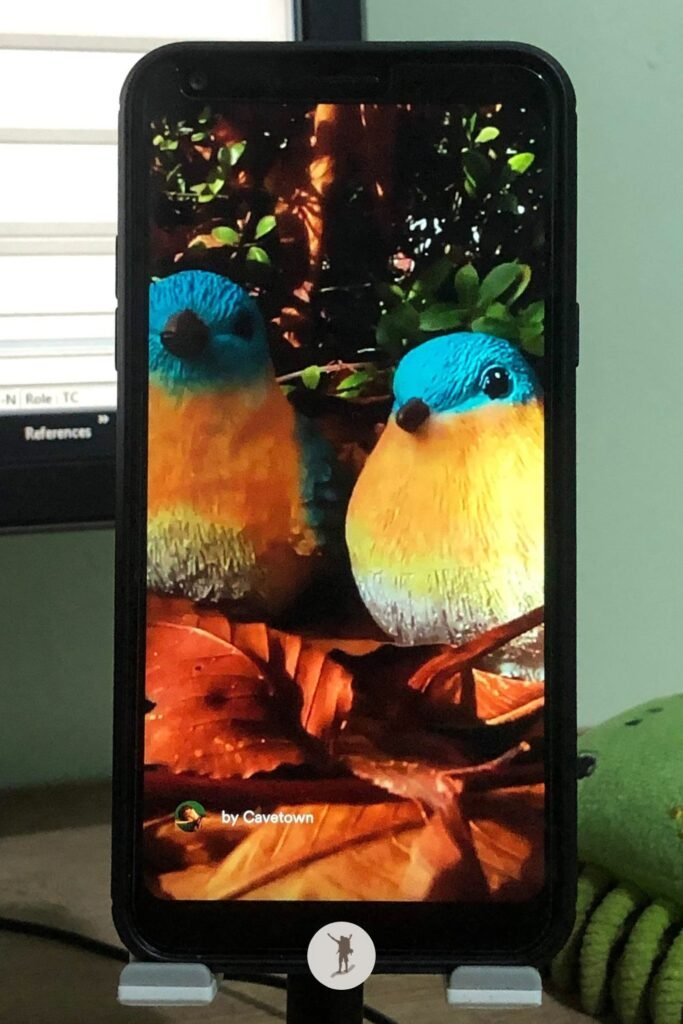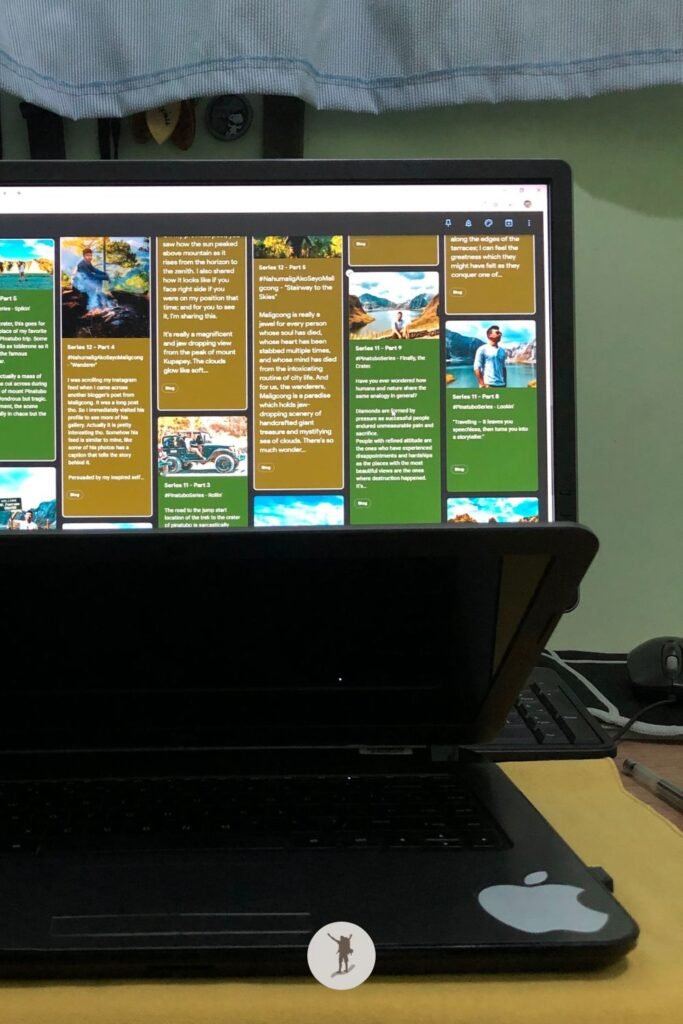If there are three terms I’d use to summarize why I left my nine-to-five for blogging, they are burnout, poor work-life balance, and constrained personal growth.
However, before I quit my job, I made sure I tried my best to stick with it. I tried to stay optimistic, believing that things would improve if I just managed to hang on.
I didn’t want to give up easily, especially since I studied engineering in college. It took a lot of effort, money, and time, five and a half years, including studying for the licensure exam!
Even though I eventually decided to stop working 9-to-5, the steps I took to improve my working conditions really helped ease my frustrations. Today, I’ll talk about those steps with you.
Just a quick disclaimer: what I’m going to share isn’t advice, but it should give you some ideas on how to help yourself if you’re in a similar situation to the one I was in.
Hi reader! It’s Eljon, and before we continue, I want to welcome you to my blog, Explore to Thrive. Here, I share my experiences with traveling, reflections on spirituality, personal growth and insights on building an online business, all to make a difference. But my mission goes beyond that. You can learn more about what I do by visiting my homepage.



#1 Listen to Music

One of the things I did most often to improve my situation at work was listen to music.
With my smartphone always nearby, music was just a tap away, ready whenever I needed it.
Like, I’d just plug in my earphones after those stressful meetings with the boss, when the team missed a deadline while juggling seven projects, I’d feel better!
Music was my numbing tool in the office, and it magically helped me stay focused and get more work done. Honestly, wsithout music, I might have quit sooner after a few months of being in a demanding job. It was definitely a quick and budget-friendly escape!
Confession time: I used to listen to live concert recordings.
They were awesome for boosting my mood, especially when I heard the crowd singing along with the artist. It was like they instantly transported me away from the office!
Another way music helped me get through the daily grind at the office is by giving me a motivation boost.
I’ve made it a morning ritual to listen to inspiring tracks to kickstart my day. From Coldplay’s “Viva la Vida” to The Goo Goo Dolls’ “Better Days” and Miley Cyrus’s “The Climb,” oh man, I’ve probably played them a thousand times!
If you want to check out the songs that keep me inspired, here’s my Spotify playlist, Live Inspired.


#2 Tune into a Podcasts & TED Talks

When my earphones are plugged in and I’m not listening to music, I’m tuned into a podcast or a TED Talk.
How did I get into podcasts and TED Talks? It all started in 2017 when I gave up my city apartment to save money.
It was a smart financial move, I should say. However, it left me with 4 hours of empty time during my commute back and forth.
That’s when I discovered podcasts and TED Talks, to be productive and make the most of my time.
During my first year as a software engineer, I wasn’t burned out yet, so I listened to podcasts and TED Talks that I found interesting, like those from the 20 Most Watched TED Talks playlist.
My favorites from that list are “The Power of Vulnerability” and “Do Schools Kill Creativity?”
Listening to podcasts only became really helpful for me in 2018, when I switched to a new job closer to home, cutting my commute by 30 minutes.
It was a startup company, and while I knew it would be challenging, I didn’t expect it to significantly impact my work-life balance.
Like… A few months into the job, I was already looking for emotional support and professional advice to keep going!
I didn’t tell my friends, but I did ask my parents for advice. Unfortunately, the generation gap made it hard for us to understand each other, so I turned to experts offering free advice in their podcasts, perfect for long commutes.
I tried listening to several podcasts, but nothing interested me as much as Lewis Howes‘ podcast. He’s a former pro athlete who became an entrepreneur and motivational speaker, truly inspiring.
He hosts The School of Greatness podcast, a self-help podcast, where he chats with all kinds of guests, like entrepreneurs, athletes, authors, and experts.
The podcast is all about personal growth, success tips, and improving your mindset, with the goal of helping listeners reach their full potential in different areas of life, whether it’s health, wealth, relationships, or just becoming a better version of yourself.
His podcast #685, a 29-minute episode on managing anxiety, burnout, and overwhelm, was perfect for me.
The timing of its release in August 2018 couldn’t have been better, right when I needed it most!
Listening to many of his podcasts fueled my drive to tackle my challenging job. The advice he offered transformed my well-being and mindset in powerful ways.
Honestly, discovering The School of Greatness podcast is probably what sparked my interest in business and entrepreneurship.


#3 Read Books & Articles

Although I enjoy The School of Greatness podcast, I’ve only found a few episodes relatable. I think I just listened to a couple dozen episodes of the podcast.
Needing more ideas on how to improve my situation, I started searching for more advice online. I set out to explore different social media platforms to find it.
I explored many, from Facebook motivational groups to Instagram self-help pages and YouTube. However, I ended up on Pinterest, which was a gold mine for beautiful pictures overlaid with motivational quotes.
“This is amazing,” I thought.
While scrolling, I stumbled upon a pin linked to Mark Manson’s blog, which became my go-to place for self-help in replacement of podcasts and TED Talks.
Right from the first article I read on his website, I was instantly hooked by his unique way of explaining things.
I can still remember that it was his article, The Subtle Art of Not Giving a Fuck, which you bet is unique just by looking at the title.
Ha! Fucking unique.
Mark Manson’s website is full of insightful and eye-opening articles. I’ve learned a lot of things like:
- Choosing what to care about
- Understanding the value of suffering
- Taking responsibility
- Setting boundaries
I also discovered the concept of a growth mindset there, which means embracing failure as part of growth, and much more.
After reading his articles, I realized I was stressed at work because I was putting too much energy into interfering with management. I kept suggesting ways to improve our workflow and prioritize tasks.
Well, I couldn’t help it because their way of running projects was affecting me negatively.
So yeah, it turns out that what Manson suggests in his articles was right. I was giving attention to things I shouldn’t care about in the first place.
Especially since I’m only an engineer, my task is to code and deliver projects. Management stuff was never in my job description, and I kept stressing about it.
Since then, I’ve stopped worrying about things that don’t concern me. Miraculously, this has made me feel much better at work.
Besides reading Mark Manson’s articles, I also read “The Alchemist” by Paulo Coelho.
I started it during my first job but stopped after two chapters because I couldn’t relate to it. Later, during my second job, I picked it up again and finished it.
This time, the idea of a “personal legend” in the book made sense to me, so I completed it. “The Alchemist” has become my all-time favorite book.
What I learned from it that helped me at work is the idea of “trusting the universe.” This lesson was similar to what I got from reading Mark Manson’s website.
I realized that I must let go of controlling what I cannot control (like project management) so I can be more productive in my technical work. I must trust the universe, have faith that things will unfold as they should.


#4 Travel!

If there’s one book that perfectly introduced me to the beauty of traveling, it’s my favorite book, “The Alchemist.”
In it, we follow Santiago’s journeys, showing how travel can profoundly change a person’s life.
It’s hard to explain everything here, but in short: Santiago’s travels represent a journey of self-discovery. Each place he visits and every experience he has teaches him something about life, fear, love, and finding his purpose.
After reading about Santiago’s adventures, I really wanted to travel too. However, I couldn’t go right away because I didn’t have time to plan the trip, thanks to my demanding job.
But by the end of 2018, I got the chance to travel, which was perfect timing because I really needed a break from work.
Just so you know, during that time, I was really frustrated with all the work that didn’t match the job I applied for. Instead of coding firmware, which I wanted to get better at, I was stuck doing test fixtures and procedures.
My motivation to go to work hit rock bottom. It was a crazy time.
Anyway, it was my ex-coworker who offered me a chance to travel, and I didn’t hesitate to accept.
I said ‘yes’ right after he invited me to join their group for a 3-day visit to Sagada, a small town in the mountains north of the Philippines. I was so excited because Sagada is a beautiful place I’ve wanted to visit ever since I saw it in a local movie years ago.
It was my first mountain trip, and it turned out to be absolutely unforgettable. There, I forgot all my work problems and felt amazing for weeks after.
It stopped me from overthinking all the depressing things happening at the office. The breathtaking mountain views and fun adventures erased all the thoughts I didn’t want to think about anymore.
Discovering that travel is my happy pill, I decided to do more of it the next year.
And yes, in 2019, I traveled a lot, visiting four countries and eight local destinations in the Philippines, one destination per month.
The result? For 12 months, I managed to lower my stress, improve my resilience, and most importantly, avoid writing my resignation letter.
Talk about another great benefit of travel!


5. Journal the Travels

The travel euphoria I felt from each trip wouldn’t have lasted as long without my journaling habit.
Journaling helped me avoid overthinking about how miserable my corporate career had become. After every trip, I wrote about all the amazing experiences and beautiful places I visited.
It worked amazingly well, flushing all my weariness out of my system. The dopamine and serotonin from the nostalgia of recalling my travel experiences really helped.
I used to have an Instagram account where I kept all my journals. I called it “Engineering Traveling” and treated it as my first blog, although it wasn’t official like “Explore to Thrive.” Unfortunately, it’s no longer around.
Here’s how I journaled my experiences on Instagram:
- Depending on how long my trip was, I’d pick 9 to 12 pictures to share and publish them gradually over a month
- Each photo came with an essay-like description, usually describing the feelings and lessons I gained from the trip, in addition to what I’ve mentioned earlier.
- Sometimes, I included tips and information about the place to help my Instagram followers if they wanted to visit the same spots one day.


#6 Coffee Time with Friends

While some of my Instagram posts had a rant-like theme, such as “I travel because my job sucks,” I was lucky that I didn’t have to say it explicitly in real life.
My friends understood without me having to explain.
They’re my office friends, three beautiful ladies and one talented guy, and they’re my lifeline every dreadful day at work.
We used to hang out at the Starbucks near our office, having coffee even if it was already 8 PM, just to vent and relax.
This usually happened once a week, but if there was intriguing news, major issues, or office gossip, like fights between upper management, new hires, or someone getting scolded, we’d meet up two or three times! LOL.
I was the type who mostly listened and wasn’t a great storyteller. But when I did talk, it often came with tears. You can assume most of them were tears of joy!
The takeaway is that having friends to talk to at work is a blessing. They make bad situations bearable and good times even more fun.
In fact, before I left my second company, where I had these amazing friends, I tried to leave 2 or 3 times but was stopped by their love and support.
Office friends can really help relieve stress from work.


#7 Exercise Whenever Possible
👆🏻Vanity shot before working out at home

Another reason I like my office friends is that they often brighten my day as soon as I walk in.
For example, one morning, I wore a well-fitted shirt to work, and a friend commented, “You’re getting hotter and hotter every day!” It made me laugh out loud.
Well, I’m glad she noticed because I’ve been working out at home for a while, and it shows I’m making progress. Honestly, I wouldn’t be so committed to working out if I weren’t so stressed at work!
Similar to how I discovered Mark Manson’s website, it was also during those times I was researching self-help that I found out workouts are great for reducing stress.
Based on different websites I read, physical activity triggers the release of endorphins, also known as “feel-good” hormones, which improve mood and reduce feelings of stress.
At the same time, focusing on exercise shifts your attention away from work-related worries, giving your mind a break from stressful thoughts.
Since there’s no harm in trying and it would also improve my physical appearance, I didn’t hesitate to go for it.
However, I wasn’t very consistent with my workouts because I often came home exhausted after work. But I made sure to work out whenever I could.
If I remember correctly, I managed at least two workouts per week, one during the weekdays and one on the weekend.
From my experience, I can say that working out really does help reduce work-related stress, just like my research suggested.
Final Thoughts
In December of 2020, I handed my last resignation letter and never looked back to having a 9 to 5 job again ever since.
With that in mind, can I still say that these actions I took to remove stress from my corporate work were effective? Absolutely, yes, at least in my case.
I only spent four years in the corporate world because I realized it didn’t suit my personality or life goals. Instead of forcing myself to stay, I decided it was better to focus my energy on finding my own path, like my personal legend.
If you’re thinking about going from being an employee to a full-time blogger like I did, here’s some advice before you take the plunge.

Thank you for reading my post. I hope my reflections and experiences inspire your own personal and spiritual journey. Before you go, if you haven’t explored it yet, stop by my home page where I share more about who I am and my path. See you there!
For new posts and updates on how I am growing this blog, subscribe to my newsletter.

You must be logged in to post a comment.